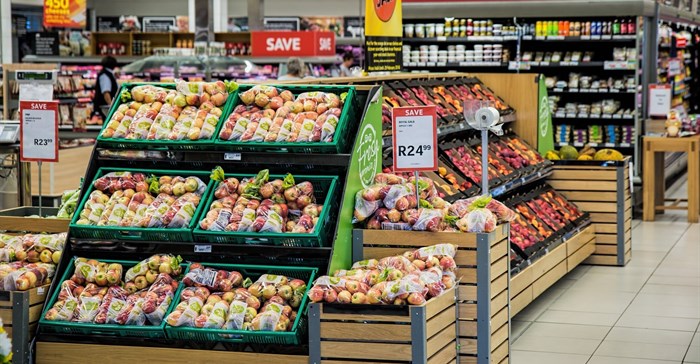Grocery retailing: Five lessons for doing business in Africa
Many have learned along the way that doing business in Africa poses significant challenges, however. What can grocery retailers learn from those who have ventured north to set up (and sometimes close) shop in fast-growing markets elsewhere on the continent?

Guy Lundy, a trends analyst and strategy consultant specialising in the retail and consumer sector across Africa, says there are several lessons to be learned from the trailblazers who have established businesses in African countries over the last few years:
- • Source local products as far as possible: “Governments across Africa are becoming increasingly strict about the import of fast-moving consumer goods (FMCG). Retailers need to source from local producers, or at least have a clear plan setting out how this will be achieved,” said Lundy. He cites an example of a large South African retailer that initially imported the vast majority of products sold at its venture in Zambia a few years ago, but is now importing well under half of its offering;
• Employ local staff where you can: “The same goes for staff – African governments are becoming hesitant to extend visas to expats without a specific plan from the retail company to up-skill local talent. So, by all means bring in your expat team to get the show on the road, but then be prepared to hand over the reins to trained local managers who know the home market inside out,” he said;
• Go ‘Africa lite’ and start close to home: A number of South African retailers started their expansion drives in neighbouring countries, such as Namibia, Botswana, Lesotho and Swaziland, before venturing further afield on the continent. “These countries have markets similar to that of South Africa, and their geographic proximity makes them less risky than Nigeria or Kenya, for example. After learning the ropes in these countries, many companies do then set up shop in one or more of the regional hubs of Africa – Kenya in the east, Nigeria or Ghana in the west, and Egypt, Morocco or even Dubai in the north.”;
• Be very selective about the countries you choose for expansion: A country’s market may look great on paper – with a burgeoning population and growing income – but navigating this market may be fraught with difficulties. “Angola and the DRC are notoriously challenging in terms of establishing a business, for example,” Lundy said. Aspects to consider include language barriers, banking systems, and corruption levels; and
One major South African FMGC retailer that has been at the forefront of the ‘Africa expansion’ story is Pick n Pay. The company now has stores in South Africa, Namibia, Botswana, Zambia, Mozambique, Mauritius, Swaziland, and Lesotho. Additionally, Pick n Pay owns a 49% share of a Zimbabwean supermarket business, TM Supermarkets.
Pick n Pay has adopted a systematic approach to expanding into countries adjacent to South Africa. Gareth Ackerman, chairman of Pick n Pay Stores, and co-chair of the Consumer Goods Forum, said: “We have followed a deliberate, unhurried and well-planned strategy in Africa outside South Africa. We see good upside potential in this market and for us – Africa is definitely a second engine for growth.”
Growth spots for grocery retailers
Lundy said that Mauritius, Mozambique, Kenya, Tanzania, Zambia, Nigeria and Ghana have become growth spots for grocery retailers in Africa. These countries have fast-growing populations and growing gross domestic product (GDP) per capita. Infrastructure remains a challenge, however, and multinational retailers are increasingly joining forces with property developers and financial services organisations to address these issues.
“A major South African retailer recently partnered a property group to build 10 malls in Nigeria, for example, with the retailer as the anchor tenant in each. So South African grocery retailers moving into Africa are not only making use of opportunities in these developing markets – they are also assisting in the growth of these markets, paving the way and making the ride smoother for other companies still considering their entry into these up-and-coming markets,” Lundy concluded.
The local and global issues affecting both grocery retailers and manufacturers will be cast under the spotlight at this year’s Consumer Goods Forum Global Summit, to be held at the Cape Town International Convention Centre from 15 to 17 June, 2016. Scores of CEOs of both global and local FMCG companies will join the Global Summit – the first of its kind on the African continent – to debate issues such as sustainability, food safety and security, and global environmental practices.
The Consumer Goods Forum Global Summit is expected to draw more than 800 delegates from over 365 companies in 40 countries. The co-chair of The Consumer Goods Forum and chairman of Pick n Pay Stores, Gareth Ackerman, will host the CEOs from the world’s most influential consumer and retail brands, such as Alibaba, Facebook, Walmart, Sainsbury’s, Nestle, McCain and Pepsico, at the event.
Manufacturers, retailers and service providers within the consumer goods industry who wish to attend this year’s Consumer Goods Forum Global Summit can register here to attend.
Read more at www.theconsumergoodsforum.com and www.tcgfsummit.com.
































